“Wisdom is shown when one educates oneself and others in freedom and self-awareness.” Froebel in Lilley 1967:50
At Seven Stars Kindergarten we strive to provide a Froebelian principled curriculum (Tovey, 2020) and learning environment that enhances children’s social and emotional competence and engagement so children can grow as confident and competent learners.
Our research project undertaken as part of The Froebel Partnership and presented at the EECERA conference in August at Glasgow, has provided an opportunity to understand the kind of outdoor learning environment teachers need to create to promote the wellbeing and social and emotional competence of children. We have drawn on pedagogical approaches from He Mapuna te Tamaiti (Ministry of Education, 2019) and made links between Te Whariki, the Froebelian concept of unity (Lilley, 1967) and place-based education (Wally Penetito, 2013) emphasising connection to the land and people.
This research project looks at how children engage with nature in different contexts, and how we can foster an appreciation and sense of responsibility and guardianship (kaitiakitanga) in line with Froebel, Penetito and matuaranga Māori for children in our setting. Kaitiakitanga is connected closely to our other value of whanaungatanga. Rose Pere describes the concept of whanaungatanga, within Te Wheke, a Māori model of whānau well-being, as “the principle of working together to support each other across all generations.” The wellbeing of each child is interdependent with the wellbeing of their kaiako, parents and whānau. Children learn and develop best when their culture, knowledge and community are affirmed and when the people in their lives help them to make connections across settings. The focus of whanaungatanga is on togetherness and relationships to enhance a sense of belonging.
We are interested in how we as kaiako support children to understand and express these values in their outdoor experiences.
Through this research we have been reflecting on our role as kaiako when supporting children’s play outdoors.
‘Outdoors can be a source of surprise, curiosity and adventure for young children. Sadly, research suggests that too often adults tend to focus on rather mundane domestic matters such as organising turns on bikes, sorting out disputes or telling children to stop doing something’ (Bilton 2012 in Tovey 2015).
We have noticed that our children have been interested in playing games when outside. We introduced a programme called ENGAGE to support intentional teaching practice, so we could plan to support children’s developing social and emotional competence as well as identify and make use of teachable moments.
ENGAGE is an evidence-based approach that supports the development of children’s self-regulation skills through play. Developed by Associate Professor Dione Healey and widely researched in New Zealand, ENGAGE aims to advance development in emotional, cognitive, and behavioural regulation and uses intentional language to help children to understand the skills that they are learning, to communicate their feelings, thoughts and behaviours, and to connect the skills they have to situations in which they can use these skills.
We are noticing that the agency of children and kaiako within the outdoor space has the potential to provide connections to the wider community and impact on those beyond our setting. Children are now initiating and leading our games and making up their own games –challenging themselves and each other. We are sharing our games and the benefits of playing games with our families so they too can play these games with their children. Games are fun and playing them regularly with children outside enables their engagement and has had a positive impact on self-regulation and emotional wellbeing.
We will continue to align our core values of Kaitiakitanga and whanaungatanga to Froebelian Principles as we develop and grow our pedagogical approach.
References:
Berryman, M., Kerr, K., Macfarlane, A., Penetito, W., & Smith, G. (2013). Education for Māori: Implementing ka hikitia: Managing for success.
Bilton, H. (2012). The type and frequency of interactions that occur between staff and children outside in Early Years Foundation Stage settings during a fixed playtime period when there are tricycles available. European Early Childhood Education Research Journal, 20(3), 403-421.
Healey, D. M., & Halperin, J. M. (2015). Enhancing Neurobehavioral Gains with the Aid of Games and Exercise (ENGAGE): Initial open trial of a novel early intervention fostering the development of preschoolers’ self-regulation. Child Neuropsychology, 21(4), 465-480.
Healey, D., Milne, B., & Healey, M. (2022). Adaption and Implementation of the Engage Programme: Teaching Self Regulation Through Play, Within the Early Childhood Curriculum.
Lilley, I. M. (1967). Friedrich Froebel: A selection from his writings. Cambridge University Press.
Ministry of Education. (2019). He māpuna te tamaiti: Supporting social and emotional competence in early learning. https://tewhariki.tki.org.nz/assets/Uploads/files /He-Mapuna-te-Tamaiti-complete-book.pdf
Pere, R. R., & Nicholson, N. (1991). Te wheke a celebration of infinite wisdom. Tovey, H. (2015). Adventurous play outdoors. J. Moyles (4rd eds.), The excellence of play, 213-224.




Dear Anne and NZ colleagues.
I really enjoyed reading your blog. It helped me recognise the deep connectivity of yours and our Froebel work with Māori and other lived philosophies within NZ culture. We learn so much from our dialogue with you. Thank you for sharing these thoughts.
Warmest Chris